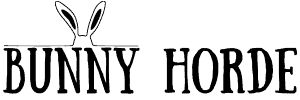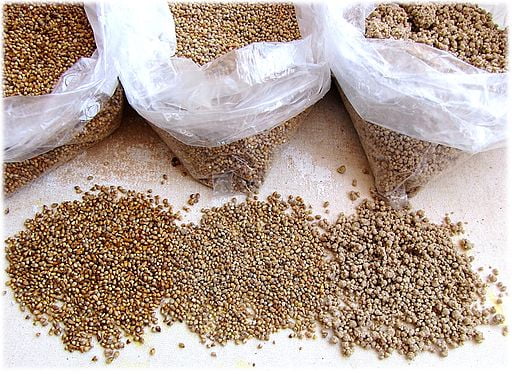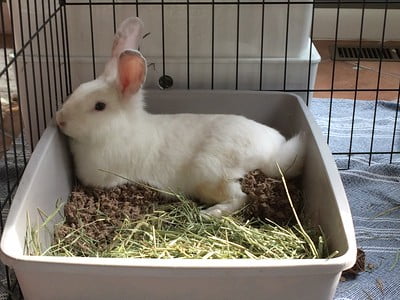Last Updated on March 3, 2023 by Marjon Ramos
While potatoes are not considered poisonous to rabbits, feeding them large amounts of potatoes could lead to digestive distress like diarrhea and GI stasis because rabbits don’t tolerate starchy foods well.
Potatoes are high in starch. 100 grams of potatoes contain 17.3 grams of starch, while the recommended amount of starch a rabbit should consume is 0–140 grams. You should never intentionally feed cooked or uncooked potatoes to your rabbits.
If you notice any changes in your rabbit’s stool, both in size and consistency, immediately bring your rabbit to a veterinarian.
Now that I’ve given you the gist of the article, read on as I explain in more detail why rabbits can’t eat potatoes:
Table of Contents
Why can’t rabbits eat potatoes?
In order to properly understand why rabbits can’t eat potatoes, you can use the nutrient constrain calculator for rabbits to see what nutrients your rabbit is getting whenever you feed them potatoes.
You can also click on the blue icon beside the nutrient to see its benefits and deficiency.
Nutrient Constrain Calculator For Rabbits
Warning:
Although potatoes have these benefits, overfeeding your rabbit is not recommended. This is only to inform you of the different vitamins and minerals your rabbit can get when you give them potatoes.
As you can see, 100 grams of potatoes contain 17.3 grams of starch.
While the recommended amount of starch that should be fed to rabbits is 0–140 grams.
Meaning, it’s best if you don’t feed them any.
Risk of overfeeding potatoes to rabbits.
Starchy foods like potatoes should not be fed to rabbits intentionally.
They carry certain risks when fed in large amounts because rabbits’ digestive systems are not really designed to digest large amounts of starchy food like potatoes.
Here are some of the risks associated with feeding your rabbits large amounts of potatoes:
Diarrhea
Diarrhea in rabbits is often caused by the wrong diet or when their diet is changed too fast.
Feeding your rabbit large amounts of potatoes would check those two boxes I mentioned.
Gastrointestinal Stasis
Gastrointestinal stasis is also possible when a rabbit is fed large amounts of potatoes, which are high in starch.
GI stasis mainly happens when a rabbit is fed a high-carb, low-fiber diet.
GI stasis happens when the balance of bacteria in your rabbit’s gut is disrupted.
This disruption would cause painful gas that would eventually lead to organ failure and death if not treated immediately.
The signs of GI stasis are:
- Depressed
- Hunched posture
- Bruxism
- Decreased appetite/anorexia
If you notice any of these signs, immediately bring your rabbit to a veterinarian.
Uneaten cecotropes
Soft uneaten cecotropes are also possible when rabbits are eating large amounts of potatoes instead of hay.
This could lead to softer cecotropes due to the lack of fiber.
Healthy alternatives to potatoes.
If you’re planning on giving your rabbit potatoes, these alternatives are much healthier:
- Spinach
- Celery
- Green peppers
- Mint
- Alfalfa, radish & Clover sprouts
- Beet greens (tops)
- Parsley
- Peapods (the flat edible kind)
- Peppermint leaves
- Bok choy
- Escarole
- Clover
- Peppermint leaves
- Carrot & carrot tops
- Radicchio
- Raspberry leaves
- Wheatgrass
- Watercress
- Cilantro
- Dandelion greens and flowers (no pesticides)
FAQ (Frequently Asked Questions)
Should you panic if your rabbit ate a little bit of potatoes?
While potatoes are not recommended for rabbits, they’re still not toxic.
It’s just that potatoes are too high in starch, which is not digested well by rabbits.
If you are worried, just feed them a lot of hay.
The extra fiber would likely fix the problem on its own.
What to do if your rabbit ate potatoes?
Observe their behavior and poop for any changes.
You should also feed them a lot of hay.
The extra fiber would help balance their gut flora.
If you notice any changes in their poop or behavior, consult a veterinarian immediately.
Conclusion
A rabbit that’s fed large amounts of starchy food like potatoes could lead to digestive distress like GI stasis, soft uneaten cecotropes, and diarrhea.
It could also lead to obesity, especially in rabbits who are confined in small cages all day without access to regular exercise.
If your rabbit is exhibiting signs of digestive distress, immediately bring them to a veterinarian.




